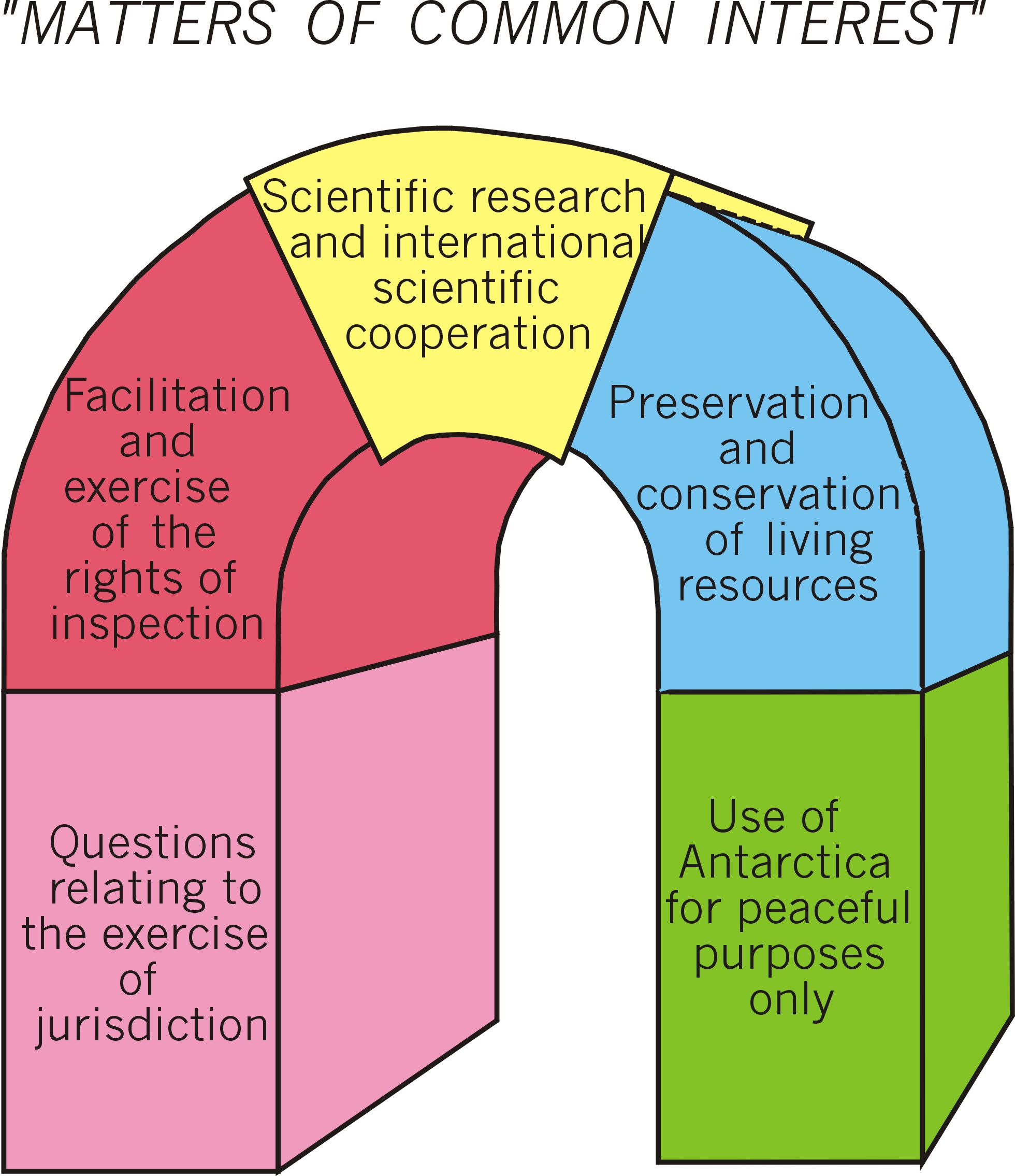Antarctic Treaty Summit 2009
50th anniversary of the signing of the Antarctic Treaty
"with the interests of science and the progress of all mankind"
50th anniversary of the signing of the Antarctic Treaty
"with the interests of science and the progress of all mankind"
Cooperation and peaceful use
In Antarctica, nations have been cooperating under the common authority of the Antarctic Treaty without asserting, supporting or denying sovereign claims. At this fundamental level, the foundational common interest of all stakeholders is that Antarctica shall continue forever to be used exclusively for peaceful purposes.
Questions of 'use' compel the stakeholders to exchange and consider information with a view toward formulating mutually acceptable strategies. However, this information must be collected and, in this sense, another common interest of the stakeholders is science. Because of the vastness of Antarctica, which is beyond the logistic capacity of any stakeholder to study alone, there also is common interest in facilitating international scientific cooperation. These common interests explain why conducting substantial research is required for consultative status to vote in the annual Antarctic Treaty Consultative Meetings (ATCM).
Emanating from the freedom of scientific investigation in Antarctica as applied during the International Geophysical Year, science legitimized international control over Antarctica by creating a mechanism for its management and a goal for its continued rational use. As an evolving foundation of information, science also has linked the past with the future, providing continuity and common ground among stakeholders over time. In essence, international scientific cooperation has become the keystone common interest among nations to use Antarctica for peaceful purposes only ... in the interest of all mankind.

Illustration of science as the keystone common interest that has facilitated ongoing international cooperation among the Antarctic Treaty nations since 1959. This archway of common interests derives from Article IX.1 of the Antarctic Treaty, which establishes the process of continuous consultation to peacefully resolve matters in furtherance of the principles and objectives of the Treaty. Adapted from: Berkman, P.A. 2002. Science into Policy: Global Lessons from Antarctica. Academic Press, San Diego.
The ways and methods in which research impacts on policy, and how policy draws on research.